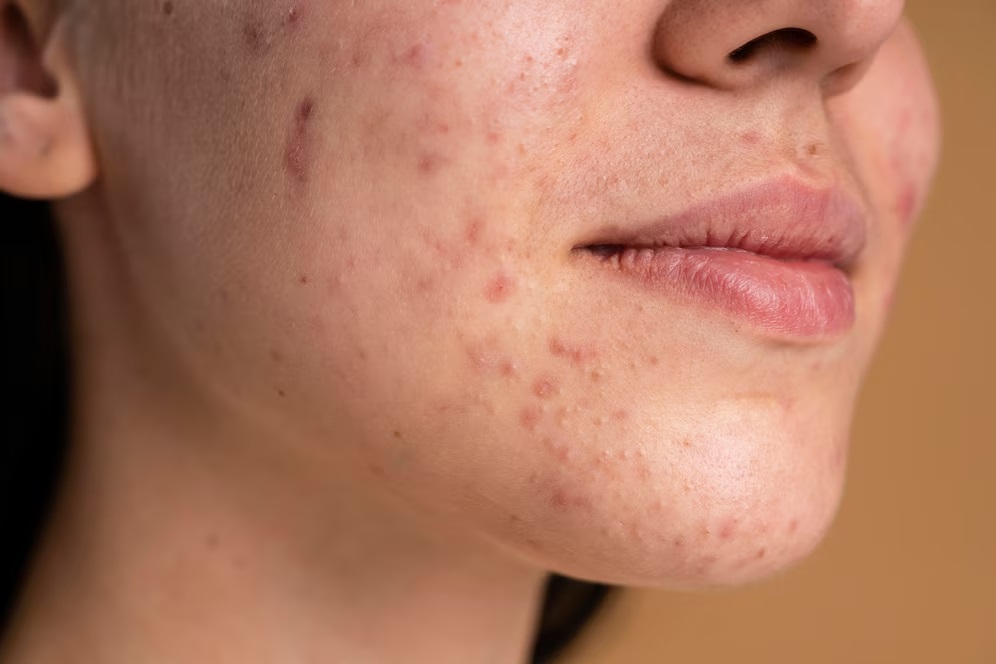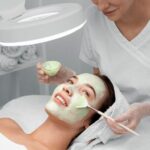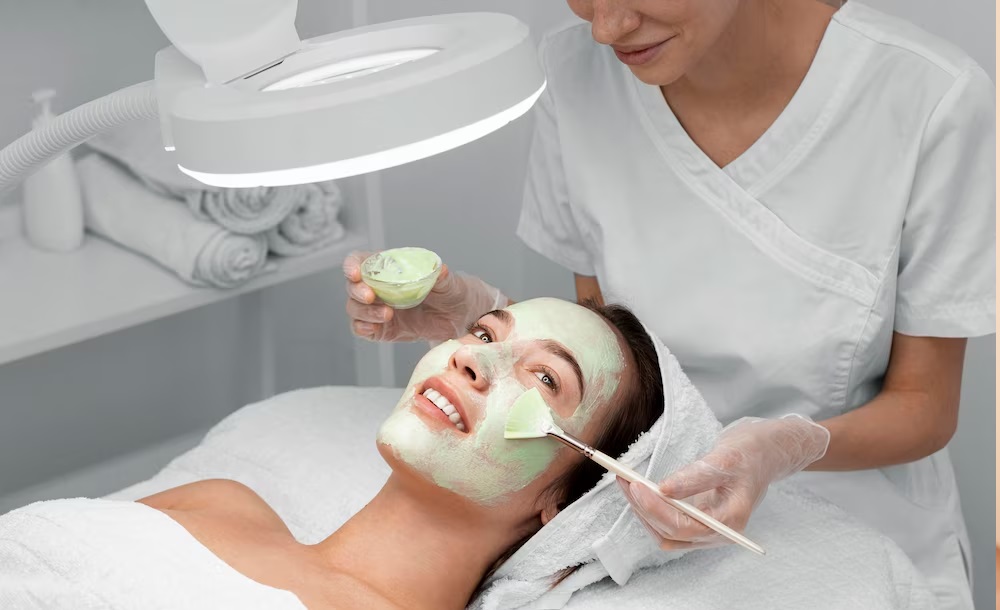Winter can be a challenging season for skin, and for many people, it brings the added concern of acne. While acne is often associated with warmer weather and excessive oil production, winter can also trigger breakouts for a variety of reasons. Cold air, indoor heating, and changes in your skincare routine can all contribute to …
Winter can be a challenging season for skin, and for many people, it brings the added concern of acne. While acne is often associated with warmer weather and excessive oil production, winter can also trigger breakouts for a variety of reasons. Cold air, indoor heating, and changes in your skincare routine can all contribute to acne flare-ups. In this article, we’ll explore why acne can worsen in winter and share expert tips on how to prevent and treat it.
Why Acne Worsens in Winter
While winter’s cold temperatures are typically linked to dry skin, the season can also bring about acne breakouts. Here’s how winter conditions can contribute to acne:
1. Dry Air and Dehydration
In winter, the air is drier, which can lead to dehydration of your skin. When your skin becomes dry, your body may produce more oil to compensate for the lack of moisture, which can clog pores and lead to breakouts. This can also disrupt the skin’s natural barrier, making it more prone to irritation and acne.
2. Indoor Heating
Indoor heating systems, which keep you warm during the cold months, can dry out the air and your skin. The heat causes moisture to evaporate from your skin, leading to a lack of hydration and a higher chance of clogged pores. As your skin tries to compensate for the dry conditions, it might produce excess oil, which can contribute to acne.
3. Changes in Your Skincare Routine
Many people adjust their skincare routines in winter, opting for heavier creams or oil-based products to combat dryness. While these products are great for hydration, they can be too heavy for acne-prone skin, clogging pores and leading to breakouts. Additionally, using harsher exfoliators in an attempt to slough off dry, flaky skin can irritate the skin, making acne worse.
4. Reduced Sun Exposure
The lack of sunlight in winter can reduce your skin’s production of vitamin D, which plays a role in managing inflammation and skin health. This can make acne worse in some individuals, as vitamin D helps regulate the immune system and keep breakouts at bay.
How to Prevent and Treat Acne in Winter
Although winter acne can be tricky, there are several steps you can take to prevent and treat it. Here are expert tips to help you manage your acne-prone skin during the colder months.
1. Hydrate Your Skin
While it may seem counterintuitive, moisturizing is key to preventing acne during the winter. When your skin is dry, it may produce more oil to compensate, which can contribute to clogged pores and acne. Use a lightweight, oil-free moisturizer that won’t clog pores but will keep your skin hydrated. Look for non-comedogenic (won’t clog pores) products containing ingredients like hyaluronic acid, glycerin, or ceramides.
Pro Tip: Incorporate a hydrating toner or essence to lock in moisture after cleansing.
2. Avoid Over-Washing
It’s tempting to wash your face multiple times a day to prevent acne, especially if your skin feels greasy. However, over-washing can strip your skin of natural oils, leading to further dehydration. Stick to washing your face twice a day—morning and night—using a gentle, hydrating cleanser. This will help maintain your skin’s natural moisture balance without causing irritation or excess oil production.
3. Use Acne-Specific Treatments
If you’re prone to acne, using targeted treatments is crucial, even in winter. Look for products containing benzoyl peroxide, salicylic acid, or sulfur to keep your pores clear and reduce inflammation. These ingredients can fight acne-causing bacteria and exfoliate the skin, preventing clogged pores.
Pro Tip: Use spot treatments for breakouts and apply them directly to the affected area rather than using all-over treatments to avoid drying out your skin.
4. Exfoliate Gently
Exfoliating helps remove dead skin cells and prevent clogged pores, but it’s important to be gentle in winter. Harsh scrubs can cause microtears and irritation, worsening acne. Opt for chemical exfoliators with AHAs (like glycolic acid) or BHAs (like salicylic acid) instead of abrasive physical exfoliants. These will help remove dead skin without causing inflammation.
Pro Tip: Exfoliate no more than once or twice a week to avoid over-exfoliation, which can lead to more breakouts.
5. Maintain a Consistent Skincare Routine
Consistency is key to managing acne, especially during winter. Stick to a skincare routine that includes gentle cleansing, moisturizing, and treating acne-prone areas with targeted acne treatments. Avoid switching up your products too frequently, as introducing new ingredients too often can irritate your skin.
Pro Tip: Try products specifically formulated for sensitive or acne-prone skin to minimize the risk of irritation.
6. Wear Non-Comedogenic Makeup
In winter, it’s common to use thicker foundations and concealers to cover up dry patches. However, these can sometimes contain ingredients that clog pores and exacerbate acne. Choose makeup products that are labeled non-comedogenic (meaning they won’t clog pores) and oil-free to prevent breakouts. Consider using mineral-based makeup, which is often gentler on acne-prone skin.
Pro Tip: Make sure to remove your makeup thoroughly at the end of the day to avoid clogged pores.
7. Stay Hydrated and Eat a Balanced Diet
It’s essential to hydrate from the inside out, especially in winter. Drink plenty of water to keep your skin and body hydrated. Also, a diet rich in antioxidants, healthy fats, and vitamins can help support skin health. Incorporate foods like leafy greens, berries, nuts, and fish into your meals for optimal skin benefits.
Pro Tip: Consider taking a daily supplement with vitamin D to support skin health, especially in the winter months when sun exposure is limited.
8. Consider Professional Treatments
If winter acne persists despite your at-home efforts, professional treatments can provide more targeted solutions. Consult with a dermatologist about options like chemical peels, laser therapy, or prescription-strength medications to treat persistent breakouts. These treatments can help manage acne more effectively and improve skin texture.
Conclusion
Winter acne may seem like an inevitable part of the cold season, but with the right care, you can keep your skin clear and healthy all year long. By maintaining proper hydration, using gentle products, and staying consistent with your skincare routine, you can prevent winter breakouts and keep acne at bay. Don’t let the cold weather worsen your skin—take action now to protect and nourish your complexion during the winter months!





